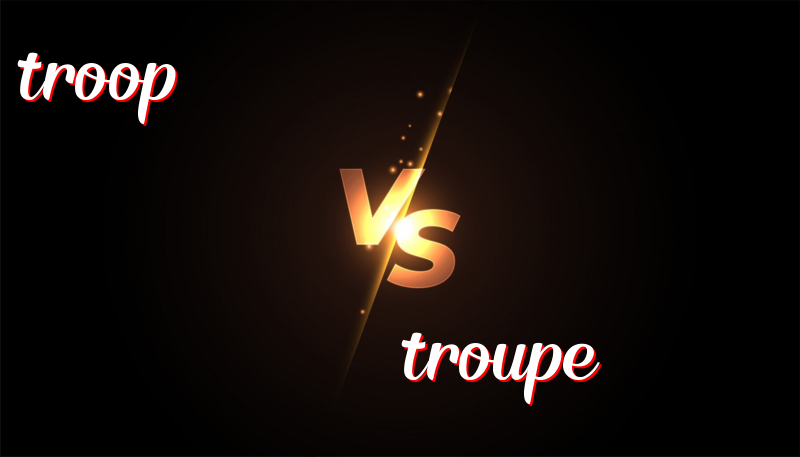Troop vs Troupe: Understanding the Difference
Understanding the Difference Between “Troop” and “Troupe”
Words in English can be tricky because some sound alike but mean different things. Two such words are “troop” and “troupe.” Let’s explore their meanings, history, how to use them, tricks to remember, and some examples.
History of the Words
- Troop: This word comes from the Old French word “troupe,” which means a group. Over time, in English, it mainly refers to a group of soldiers.
- Troupe: This word also comes from the French “troupe.” In English, it refers to a group of performers, like actors or dancers.
How to Use the Words
Troop is used when talking about a group of soldiers or sometimes animals.
Troupe is used for a group of actors, dancers, or performers.
Trick to Remember the Difference
Think of “tRooP” with an “R” and “P” as in “R” for “Raider” or “Protector,” like soldiers. For “troUpe,” “U” stands for “yoU have an Audience,” like performers.
Example Sentences: Troop
- A troop of soldiers marched down the road.
- The troop was tired after the long journey.
- We saw a troop of monkeys playing in the trees.
- She joined the scout troop for their weekly meeting.
- The boy proudly wore his troop uniform to the event.
Example Sentences: Troupe
- The dance troupe performed beautifully on stage.
- An acting troupe visited our school for a special show.
- The troupe traveled across the country to perform.
- Our local theater troupe is rehearsing a new play.
- The circus troupe amazed everyone with their tricks.
Summary of Usage
In summary, use “troop” when talking about a group of soldiers or sometimes animals. Use “troupe” for a group of performers, like actors or dancers. Remember “R” in “troop” for “Raider” and “U” in “troupe” for “yoU have an Audience” to help keep them straight.

Leave a Reply
You must be logged in to post a comment.